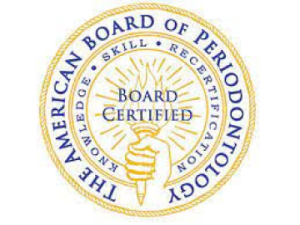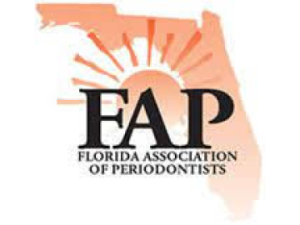Dental emergencies can be distressing and often require immediate attention to alleviate severe pain, bleeding, or infection. It is essential to understand what constitutes a dental emergency and how to respond to such situations to ensure prompt and appropriate care. In this blog, we will delve into the various aspects of dental emergencies, from identifying and managing common symptoms to preventing them in the first place.
Identifying Dental Emergencies
Identifying a dental emergency is the first step in seeking the necessary treatment. Dental emergencies encompass situations that are potentially life-threatening or require immediate care to stop severe pain, bleeding, or infection. If you are experiencing severe tooth pain, uncontrolled bleeding, or have an infection that compromises your airway, it is crucial to seek immediate dental care. Delaying treatment for dental emergencies can lead to further complications and may result in permanent damage.
Common Symptoms of Dental Emergencies
Dental emergencies can manifest through various symptoms that indicate the need for immediate treatment. Some common symptoms include severe tooth pain, which can be caused by decay, dying pulp, or an infected tooth. Gum disease, dental injuries such as broken or chipped teeth, and abscesses or infections causing pain and localized swelling are also considered dental emergencies. Additionally, objects caught between teeth or under the gums can cause pain and swelling. Trauma to the teeth that leads to loose, displaced, or knocked-out teeth requires urgent care. It is important to recognize these symptoms and seek immediate dental attention to prevent further complications.
When to Seek Immediate Care
Knowing when to seek immediate care for a dental emergency is crucial in ensuring prompt treatment. If you are experiencing uncontrolled bleeding, it is essential to seek immediate care as it may indicate a severe dental injury or health condition. In cases where soft-tissue infections cause intraoral or extraoral swelling that compromises the airway, emergency care is necessary. Immediate treatment is also required for trauma involving facial bones that potentially affect the airway. Recognizing these situations and seeking immediate care either from a dentist or the hospital emergency room can help prevent further complications and ensure appropriate treatment.
Types of Dental Emergencies
There are different types of dental emergencies that require immediate attention and treatment. These emergencies can range from issues related to dental care and treatment, such as severe toothaches that indicate a dental problem requiring immediate treatment. Other types of dental emergencies include broken or chipped teeth, which can cause pain or trauma to the teeth and surrounding soft tissues. Knocked-out teeth, where one or more teeth become loose, displaced, or completely lost, are also considered dental emergencies. Recognizing the type of dental emergency is crucial for seeking the appropriate care and treatment.
Severe Toothache and Its Implications
A severe toothache is one of the common dental emergencies that require immediate attention. Severe tooth pain can be caused by various factors such as dental decay, a cracked tooth, an infected tooth pulp, or gum disease. Ignoring a severe toothache can lead to further complications, including the spread of infection and potential tooth loss. If you experience a severe toothache, it is important to contact your dentist to determine if immediate treatment is necessary. In the meantime, you can try temporary relief techniques such as rinsing your mouth with warm saltwater, taking over-the-counter pain relievers, and applying a cold compress to reduce pain and swelling.
Broken or Chipped Teeth: Steps to Take
Broken or chipped teeth are common dental emergencies that can cause pain and trauma to the affected teeth and surrounding soft tissues. If you have a broken or chipped tooth, it is important to seek emergency dental care. In the meantime, you can take certain steps to manage the situation. Rinse your mouth with warm water and assess for any rough edges, pain, or temperature sensitivity. If you experience swelling due to a facial injury, applying a cold compress can help reduce pain and swelling. It is important to visit an emergency dentist as soon as possible to prevent further damage and receive appropriate treatment. If you have a broken or chipped piece of tooth, bring it with you to the dentist’s office.
Knocked-Out Teeth: Preserving Your Smile
A knocked-out tooth is a dental emergency that requires immediate attention to preserve your smile. If your tooth gets knocked out, it is important to act quickly. First, try to locate the tooth and hold it by the crown (the visible part) without touching the root. If possible, place the tooth back into the socket and hold it in place. If you cannot put the tooth back into the socket, keep it in your mouth next to your cheek or store it in milk, saliva, or an emergency tooth preservation solution. It is crucial to see an emergency dentist within 30 minutes to increase the chances of saving the tooth. Even if you cannot reach a dentist within that timeframe, there may still be a chance to save the tooth if it is properly preserved.
Managing Pain in Dental Emergencies
Managing pain is an important aspect of dental emergencies. Severe pain can be debilitating and require temporary relief until you can receive proper treatment from a dentist. Over-the-counter pain relievers such as acetaminophen can help alleviate pain temporarily. It is important to follow the recommended dosage guidelines and avoid putting aspirin directly on the affected area as it can burn the tissue. Using a cold compress on the cheek can also help reduce pain and swelling. However, it is important to remember that these are temporary measures, and seeking professional dental care is crucial for addressing the underlying cause of the pain.
Temporary Relief Techniques
In dental emergencies, temporary relief techniques can provide some respite from severe pain or discomfort. If you are experiencing a toothache, floss carefully to remove any trapped food particles that may be causing pain. Rinsing your mouth with warm saltwater can help alleviate pain and reduce inflammation. Over-the-counter pain relievers such as acetaminophen can also provide temporary relief. It is important to avoid placing aspirin directly on the sore area as it can cause tissue burns. Applying a cold compress to the affected area can help reduce pain and swelling. However, it is essential to remember that these techniques provide temporary relief and should not replace professional dental care. Make sure to schedule an appointment with your dentist to address the underlying cause of the pain.
Over-the-Counter Medications: Dos and Don’ts
Over-the-counter medications can be used to manage dental pain in emergencies, but it is important to follow certain guidelines. When using over-the-counter pain relievers such as acetaminophen, it is crucial to follow the recommended dosage instructions. Avoid placing aspirin directly on the affected area as it can cause tissue burns. It is also important to note that over-the-counter medications provide temporary relief and do not address the underlying cause of the pain. Seeking professional dental care is essential to diagnose and treat the dental issue causing the pain. If you are unsure about using over-the-counter medications or have any concerns, it is advisable to consult with a healthcare professional or your dentist for medical advice.
First-Aid for Dental Emergencies
Knowing how to provide first-aid for dental emergencies can make a significant difference in managing the situation until professional dental care can be sought. Whether it’s handling a lost filling or crown or dealing with abscesses or infections, having the right knowledge and tools can help alleviate pain and prevent further complications. In the following sections, we will discuss the first-aid steps for specific dental emergencies, including lost fillings or crowns and abscesses or infections.
Handling a Lost Filling or Crown
Handling a lost filling or crown requires immediate attention to prevent further damage to the affected tooth. Here are the steps to take:
- Clean the affected area: Gently rinse your mouth with warm water to remove any debris or food particles from the tooth.
- Temporary filling material: If available, you can use dental cement or temporary filling material to cover the exposed area and protect the tooth until you can see your dentist.
- Avoid chewing on the affected tooth: Try to avoid putting pressure on the tooth while eating to prevent further damage.
- Schedule an appointment with your dentist: It is essential to see your dentist as soon as possible to replace the lost filling or crown and ensure the tooth’s integrity.
What to Do with Abscesses or Infections
Abscesses or infections in the mouth can be painful and require immediate attention. Here’s what you can do:
- Rinse with warm salt water: Rinse your mouth with a warm saltwater solution to help alleviate pain and reduce inflammation.
- Seek professional dental care: It is crucial to see your dentist as soon as possible to treat the abscess or infection. Your dentist may prescribe antibiotics to help clear the infection.
- Avoid applying heat: Avoid applying heat to the affected area as it can worsen the infection or abscess.
- Follow your dentist’s instructions: Your dentist will provide specific instructions on how to care for the abscess or infection. It is important to follow their advice and take any prescribed medications as directed.
Preventing Dental Emergencies
Prevention plays a vital role in avoiding dental emergencies. By taking proactive measures, you can significantly reduce the risk of experiencing dental emergencies. This includes maintaining good oral hygiene practices, wearing protective gear during sports or recreational activities, and scheduling regular dental check-ups.
Daily Oral Hygiene Practices
Practicing good oral hygiene is essential in preventing dental emergencies. This includes brushing your teeth at least twice a day with fluoride toothpaste, flossing daily, and using mouthwash to remove bacteria and food particles. Additionally, it is important to avoid tobacco use, limit sugar consumption, and eat a balanced diet to promote dental health. Regular dental check-ups are also crucial in detecting and addressing any potential dental issues before they become emergencies. By incorporating these daily oral hygiene practices into your routine, you can maintain a healthy smile and minimize the risk of dental emergencies.
Protective Gear for Sports
Engaging in contact sports can increase the risk of dental injuries. To prevent dental emergencies during sports activities, it is important to wear protective gear. This includes using mouthguards, face shields, and helmets to protect your teeth, jaw, and facial bones. Mouthguards, in particular, are highly effective in preventing dental injuries and can be custom-fitted by your dentist for optimal protection. By using the appropriate protective gear, you can enjoy your favorite sports activities while minimizing the risk of dental emergencies.
Regular Dental Check-Ups: A Necessity
Regular dental check-ups are essential in preventing dental emergencies. By scheduling routine visits to your dentist, you can proactively address any dental issues before they escalate into emergencies. During these check-ups, your dentist will assess your oral health, perform necessary cleanings, and identify any potential problems. They may also provide preventive treatments such as dental sealants or fluoride treatments to strengthen your teeth and prevent decay. Regular dental check-ups are recommended by the American Dental Association as part of a comprehensive oral care routine. By prioritizing regular dental visits, you can minimize the risk of dental emergencies and maintain optimal oral health.
Contact Palm Beach Periodontics Today
In conclusion, understanding what constitutes a dental emergency is crucial for timely and appropriate care. Recognizing common symptoms and knowing when to seek immediate attention can make a significant difference in preserving your oral health. Proper management of pain, knowing first-aid techniques, and preventive measures are key aspects of handling dental emergencies effectively. By staying informed and prepared, you can navigate through dental emergencies with confidence and ensure the well-being of your dental health. Remember, swift action and preventive care play vital roles in addressing dental emergencies promptly and efficiently. Stay proactive, stay informed, and prioritize your dental health. Contact us if you need emergency dental care today.
Frequently Asked Questions
Can a Toothache Be an Emergency?
Yes, a toothache can be considered a dental emergency if it is severe, persists, or is accompanied by other symptoms such as swelling or fever. Seek immediate attention from an emergency dentist if you have a severe toothache.
How Can I Tell if It’s a Dental Emergency?
Dental emergencies typically involve severe pain, uncontrolled bleeding, trauma to the teeth or facial bones, or infections that potentially compromise the airway. If you experience any of these symptoms, it is important to seek immediate treatment from a dentist or visit the emergency room.
What Should I Keep in My First-Aid Kit for Dental Emergencies?
A dental first-aid kit for emergencies may include items such as gauze, a small container with a lid, over-the-counter pain relievers, and dental cement or temporary filling material. These items can help manage dental emergencies until professional dental care can be sought.












